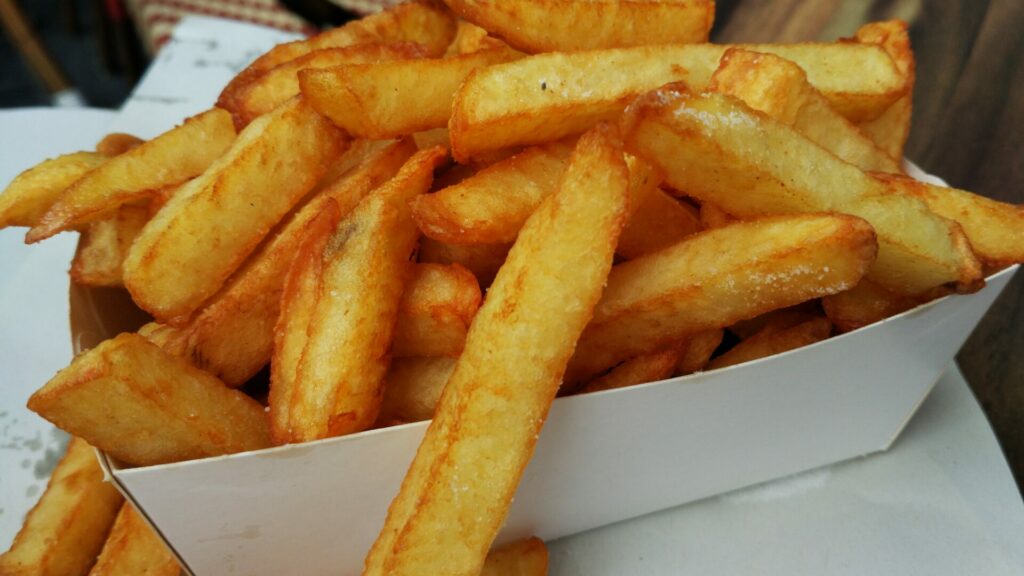Belgian food lovers, brace yourselves: the price of a packet of Belgian frietjes, or frites, has increased 13% compared to last year — the largest increase in 20 years, according to Statbel, Belgium's official statistics office.
The latest figures imply that frietje prices have risen 61.5% more than Belgium's 8.05% current annual rate of inflation. Moreover, they entail that over the past 18 years, the price of a packet of frietjes has increased a whopping 97% — significantly more than the rise in prices for meat (59.2%), wine (49.5%), and fruit (40.3%).
According to Bernard Lefèvre, the Chairman of Navefri-Unifri — the Belgian trade association which represents the interests of frietkoten or frituren — the enormous price hike is due to a confluence of factors: or, as Lefèvre it, an economic "perfect storm".
"Mayonnaise, potatoes, frying fat and oil, but also snacks and, the biggest cost, energy: absolutely everything has become much more expensive over the past year," Lefèvre told De Standaard. "French fries are like a loaf of bread or a pint for the Flemish: a price increase of 20 to 30 cents does not seem like much, but it does feel like a drama. A much larger price increase for a dishwasher is less emotional. And, believe me, the frituristen [frituur owners] themselves also have a hard time with it."
To increase, or not to increase prices?
Lefèvre further explained that, typically, raising prices is one of the few options available for struggling frituren.
"Raising prices may be the only logical option if costs rise," said Lefèvre. "Reducing opening hours is the only viable alternative. Setting the fryer to a lower temperature is not possible. Using the fat or oil for longer, you can't do that at all. Smaller portions have hardly any impact on costs."
De Standaard also interviewed Kurt Caen of the Frituur 't Brochetje frietkot in Izegem, which has twice been voted the best frituur in Flanders. Caen was recently forced to increase prices in order to keep her business afloat.
"I did it with pain in the heart," Caen said. "But what do you want when a pack of frying fat doubles in price in one year and the suppliers of snacks and sauces increase their prices with every invoice? Even the cardboard trays became more expensive. If I were to calculate everything, I would have to ask even more. But I don't want that, even if it eats into my profit margin. To reduce costs, especially on energy, we [also] now close an hour earlier."
An unconventional approach
Rather than raising prices, however, some frituristen have adopted an unconventional approach in their efforts to remain solvent. In particular, Marina Bracke, who owns Fredje Friet in Oudenaarde, East Flanders, recently sent her customers a letter, in which she detailed the dire financial situation faced by her frituur and exhorted customers to purchase her frietjes on a more regular basis.
"Our advance bill for energy went from €2,600 to €9,700 per month," the letter reads. "We make sure that it remains affordable; you keep coming. Even in less busy times. Rather than having to lay off staff."
Related News
- Stoofvlees: Belgium's favourite dish?
- Hidden Belgium: Frites Atelier
- Biting inflation: Fries 20% more expensive
"Our customers are also seeing their invoices increase," Bracke explained. "If we were to charge €2.50 for a frikandel, then the people who bake at home will bake it themselves. Or €1.20 for a jar of mayonnaise? Then they will just take some from the fridge at home."
According to Bracke, her initiative appears to have worked: "While many colleagues complain that sales are falling, we do not see any decline in our frituur."

